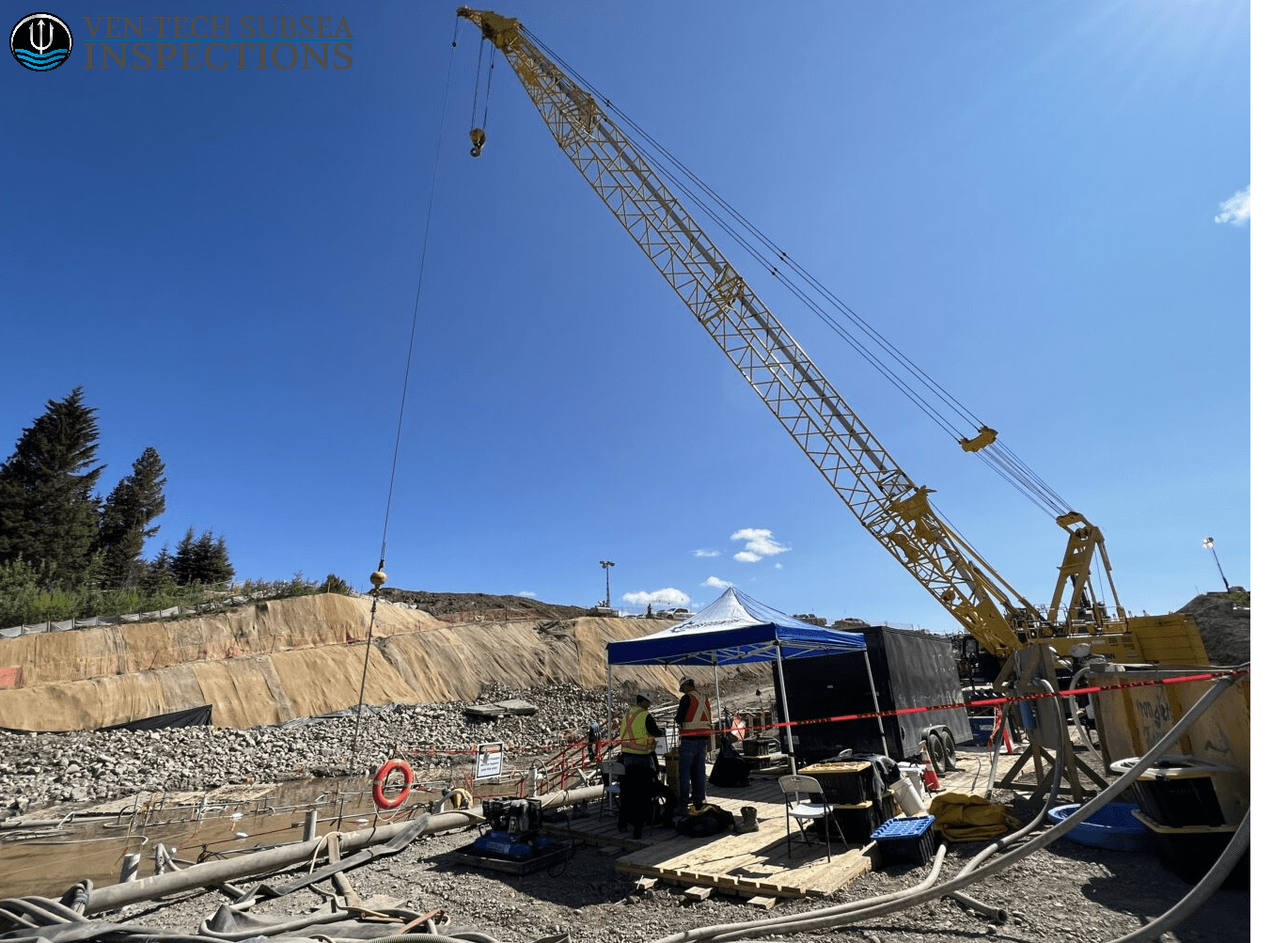Underwater work has long fascinated humankind, but for today’s industries, it has become a vital necessity rather than a pursuit of curiosity. Beneath the water’s surface, a world of construction, inspection, and repair supports the foundations of modern infrastructure. From energy production to harbor maintenance, professional diving services play an essential role in keeping critical systems operational and safe.
These operations bridge the gap between engineering and exploration. Professional divers are responsible for everything from underwater welding to pipeline repair, salvage operations, and ecological restoration. Their expertise allows industries to function smoothly in areas where traditional equipment cannot reach. Each dive is a combination of technical skill, scientific understanding, and precise execution,performed in environments that demand both discipline and courage.
As underwater infrastructure expands and environmental concerns grow, the relevance of diving services continues to increase. The underwater world is constantly changing, influenced by tides, corrosion, and sediment movement. Skilled diving teams ensure that essential underwater assets,from bridges and dams to offshore platforms,remain secure and sustainable. Professional diving remains one of the most challenging and rewarding fields in industrial engineering, combining human capability with cutting-edge technology to maintain safety beneath the surface.
Types of Professional Diving Service
The scope of professional diving services is extensive, covering inspection, construction, maintenance, and recovery operations. Each category addresses specific industrial and environmental needs, but all rely on precision, expertise, and strict safety protocols.
Inspection diving focuses on assessing the condition of underwater structures. Divers use cameras, sonar, and other monitoring equipment to detect corrosion, cracks, or biological growth. This critical work ensures that potential issues are identified early, preventing larger structural failures and supporting long-term operational reliability.
Maintenance diving involves tasks that preserve and extend the life of submerged infrastructure. This can include cleaning surfaces, applying protective coatings, repairing minor damages, and ensuring that pipelines, docks, and offshore platforms remain in optimal condition. Regular maintenance minimizes downtime and reduces the need for costly repairs.
Construction diving covers more complex projects. Divers perform underwater welding, concreting, cutting, and assembling components for bridges, marine installations, pipelines, and offshore structures. These operations demand high technical skill, coordination, and endurance in challenging underwater conditions.
Salvage and recovery operations are another key aspect of professional diving. These missions involve retrieving sunken vessels, equipment, or other materials, often under hazardous conditions. Divers must use specialized lifting equipment and employ creative problem-solving techniques to ensure successful recovery while maintaining safety standards.
Professional diving also supports environmental and scientific initiatives, including marine research, habitat restoration, and ecological monitoring. Divers contribute to protecting marine ecosystems while balancing the demands of industrial activities.
Through these diverse services, professional divers play a vital role in maintaining industrial infrastructure, supporting environmental stewardship, and ensuring the safe and effective operation of underwater projects.
The Training and Expertise Behind Every Dive
Every successful dive is backed by years of training, discipline, and teamwork. Commercial divers undergo extensive certification programs that cover underwater physics, equipment handling, decompression theory, and emergency procedures. They are trained to operate in varied environments,from shallow freshwater reservoirs to deep-sea construction sites,each presenting its own set of challenges.
Team coordination is critical to success. A typical dive team includes not only the diver but also a standby diver, surface supervisor, and tender crew responsible for life-support systems and communication. Constant vigilance, precise planning, and clear communication are the foundations of safe and effective underwater work.
Ven-Tech Subsea represents the highest standards of professionalism in this field. As a Canadian-based company offering precision underwater solutions, it combines the expertise of commercial divers and ROV technicians to deliver reliable underwater construction, inspection, and engineering services. Their personnel are trained to meet stringent safety and quality requirements, ensuring that every operation is executed with technical excellence and confidence.
Through experience, skill, and collaboration, Ven-Tech Subsea’s divers embody the precision and resilience that define the industry,demonstrating why diving remains a profession of both technical mastery and dedication.
Safety Systems and Risk Control
Safety lies at the core of every underwater operation. Diving in industrial environments involves multiple hazards,ranging from limited visibility and high pressure to entanglement risks and exposure to contaminants. To manage these, strict safety systems and regulatory protocols govern every phase of a project.
Divers rely on advanced life-support equipment, including helmets, suits, and umbilical systems that supply breathing gas and communication lines. Real-time surface communication ensures that divers remain in constant contact with their supervisors. Emergency air supplies, decompression chambers, and medical readiness are standard components of all operations.
Ven-Tech Subsea emphasizes a culture of safety in every aspect of its diving operations. Their safety management systems are designed to align with national and international standards, ensuring that every project is completed within the safest possible parameters. The company’s personnel recognize that risk control is not just procedural but also behavioral,built on awareness, training, and discipline.
By maintaining strict adherence to safety regulations and continuous monitoring of conditions, Ven-Tech Subsea demonstrates how professionalism and preparedness protect both personnel and project integrity in the demanding world of commercial diving.
Integration with Subsea Technology
Modern diving services rely heavily on technology to enhance accuracy, safety, and efficiency. Cameras, sonar systems, and robotic aids have become essential tools in the underwater workspace. These technologies allow divers and surface teams to gather real-time visual and structural data, improving decision-making and reducing human risk.
Remote Operated Vehicles (ROVs) and Autonomous Underwater Vehicles (AUVs) now work in conjunction with divers, particularly in deep or hazardous areas. Equipped with sensors and manipulators, they can inspect, measure, and even perform mechanical tasks, allowing divers to focus on precision work.
Ven-Tech Subsea integrates these advanced systems across its projects. The company’s ROV and diving teams collaborate seamlessly, combining human skill with technological accuracy to deliver efficient and reliable results. By using sonar mapping, 3D modeling, and high-definition imaging, Ven-Tech Subsea ensures that its operations meet the most demanding engineering and environmental standards.
This integration of human expertise and technology represents the future of diving services,one where innovation strengthens capability, minimizes risk, and opens new possibilities beneath the surface.
Industrial and Environmental Applications
The versatility of professional Diving Services Vancouver extends to a wide range of applications across industries. In the energy sector, divers inspect and maintain underwater pipelines, platforms, and intake structures. In civil engineering, they assist in constructing and repairing bridges, dams, and waterfront facilities. The shipping industry depends on divers for hull inspections, propeller cleaning, and emergency repairs.
Beyond industry, diving services play a vital role in environmental and ecological initiatives. Divers participate in marine habitat restoration, coral replanting, and the removal of debris or pollutants from water bodies. These tasks support biodiversity and improve water quality while aligning with global sustainability goals.
Ven-Tech Subsea’s operations reflect this balance between industrial performance and environmental responsibility. The company’s teams are experienced in executing projects that protect aquatic ecosystems while meeting operational objectives. Their precision and adherence to environmental standards make them a trusted partner for both engineering and conservation efforts across Canada.
Through their work, Ven-Tech Subsea demonstrates how diving services can bridge the gap between progress and preservation,supporting industries while safeguarding the health of underwater environments.
Challenges Unique to Cold or Contaminated Waters
Working underwater is demanding in any condition, but cold or contaminated environments introduce an extra layer of difficulty. Low temperatures can reduce visibility, affect equipment performance, and create health risks such as hypothermia or restricted mobility. Contaminated waters, often found near industrial outflows or urban harbors, require additional safety measures and specialized gear.
Divers working in such conditions use hot-water suits, full-face masks, and sealed helmets to maintain temperature and prevent exposure to harmful substances. Decontamination procedures are mandatory after each dive to ensure safety. Advanced communication and monitoring systems are also vital in these challenging settings, providing surface teams with constant updates on diver status.
Ven-Tech Subsea’s experience in cold-water and high-risk operations has established its reputation for resilience and reliability. The company’s teams are trained to operate effectively in Canada’s demanding underwater environments, using advanced equipment and protocols that meet strict safety and environmental standards.
These specialized capabilities highlight the adaptability of professional diving. Whether in icy waters or polluted zones, skilled divers supported by technology and preparation ensure that underwater projects are completed safely and efficiently.
Emerging Trends in Diving Services
The diving industry continues to evolve as new technologies and methodologies reshape how underwater work is performed. Sustainability and automation are emerging as the two defining trends of the future. Eco-friendly practices, such as minimizing sediment disruption and using biodegradable materials, are now central to project planning.
Automation is transforming the scope of diving operations. Hybrid human-machine teams, where divers and ROVs work side by side, are becoming increasingly common. Artificial intelligence and data analytics enhance decision-making, allowing for predictive maintenance and improved project outcomes.
Ven-Tech Subsea remains at the forefront of this transformation. The company actively integrates new tools and digital systems into its operations, ensuring efficiency, accuracy, and environmental stewardship. Its focus on continuous improvement reflects the broader evolution of the diving sector, where human skill is complemented by innovation to meet modern demands.
These advancements signify a new chapter for diving services,one defined by smarter systems, safer operations, and a deeper respect for the marine environment. The blend of expertise and technology is setting new standards for excellence in underwater engineering.
Conclusion
Professional diving services represent one of the most intricate and vital fields supporting modern infrastructure and environmental sustainability. What takes place beneath the surface is often unseen, yet it forms the foundation of many industries that sustain daily life,from power generation and transportation to coastal protection and ecological restoration. These operations demand more than physical endurance; they require precision, planning, and a deep respect for the underwater environment.
Companies like Ven-Tech Subsea exemplify this balance between technical mastery and environmental awareness. As a provider of precision underwater solutions, the company’s commitment to safety, quality, and innovation defines the future of subsea operations. By combining skilled divers with advanced Remote Operated Vehicles (ROVs) and digital inspection tools, Ven-Tech Subsea demonstrates how human expertise and technology can work together to ensure reliable, efficient, and sustainable underwater projects across Canada.
In an age where both industrial progress and environmental stewardship are equally essential, professional diving stands as a discipline that unites them. It is not merely a support service but a critical component of engineering, science, and conservation. The work of professional divers continues to expand the boundaries of what is possible underwater,maintaining the integrity of human-built structures while safeguarding the delicate ecosystems that surround them.





























